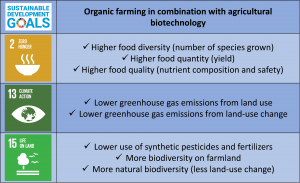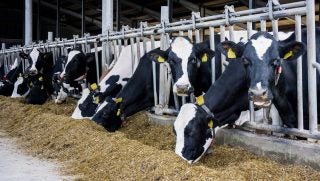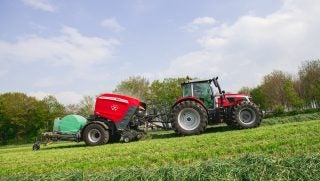Biotechnology advancements have given farmers access to seed varieties that are unlike anything producers used in previous generations. While the use of synthetic crop protection products often comes to the forefront when discussing genetically engineered crops, it’s important to realize that pesticide tolerance isn’t the only feature of these crops — in fact, it’s only a sliver of their capabilities. Modern breeding techniques, for example, have created seeds that are more resistant to drought and that can produce their own insecticides, such as Bt (Bacillus thuringiensis). So, with so many applications of biotech crops outside of the use of crop protection, many agriculturalists are forced to deal with these seeds not being allowed in organic farming practices.
Scientists in the European Union hope to change that.
An international research team, including scientists from Wageningen University & Research in the Netherlands, says that unless the EU allows novel breeding techniques such as gene editing in organic agriculture, Europe’s Farm to Fork strategy will likely fail to deliver on its promise of moving towards realizing the Sustainable Development Goals. In a paper published in Trends in Plant Science, the authors make an urgent plea for unification of these two farming methods, saying that organic farming and modern biotechnology both have their specific strengths in contributing to the SDGs — combining both approaches could unleash important synergies.
In 2015 the international community defined the Sustainable Development Goals that address the global challenges the world faces, such as Zero Hunger, Climate Action and Life on Land. The European Commission has committed itself to these goals, which have to be reached in 2030. By implementing it’s Farm to Fork strategy, the EC at the same time wants to boost the development of EU organic farming area with the aim to achieve 25 percent of total farmland under organic farming by 2030. However, if current European restrictions on the use of new breeding techniques remain in place, this increase will by no means guarantee more sustainability, the scientists say.
This approach isn’t new, especially outside the U.S., where the organic lobby isn’t as aggressive and well-funded as it is here. Many agricultural scientists say that the organic and non-organic sectors aren’t as far apart as the public is led to believe, and there has long been recognition in the scientific community that the sectors continue to teach each other about best agricultural practices, with the goal of launching the world toward greater food security in 2050.
I am looking for an #Organic #Farmer(s) to work with me who will stand up and say #GeneticEngineering is science that can make ALL farmers MORE organic by reducing fertilizer & pesticide use.
Could the future of food be
G enetically
M odified
O rganic#GMOLet’s turn this tide
— Robert Saik, PAg, CAC, CEO AGvisorPRO (@RSaik) February 8, 2018
Environmental gains at local level, losses at global level
Organic farming can have a beneficial effect on environmental protection and biodiversity at the local level. However, compared to conventional farming, organic farming also delivers lower yields. Consequently, more land is needed to produce the same amount of high-quality food, and the conversion of natural land into agricultural land is one of the biggest drivers of global climate change and biodiversity loss.
“The global demand for high-quality food increases. More organic farming in the EU can therefore result in an expansion of agricultural land elsewhere in the world, which might lead to environmental costs that exceed any local environmental benefits in the EU,” says co-author Justus Wesseler, professor of Agricultural Economics and Rural Policy at WUR. In other words: the planned EU increase of organic production may result in less, not more sustainable food systems.

Precision tools in plant breeding
In their publication in Trends in Plant Science, the authors therefore argue that achieving both the 25 percent organic farmland goal and the Sustainable Development Goals is only possible if EU law is changed and the use of modern biotechnology and novel breeding techniques is permitted, in particular in organic production.
“This is especially true for gene editing, a new precision tool used in plant breeding,” says Richard Visser, professor of Plant Breeding at WUR. “Gene editing offers unique opportunities to make food production more sustainable and to further improve the quality, but also the safety, of food especially in those crops that are cross pollinated and/or vegetatively propagated. With the help of these new molecular tools, more robust plants can be developed that deliver high yields for high-quality nutrition, even with less fertilizers.”
Copper-containing pesticides in organic farming
In addition, gene editing is used to breed fungus-resistant plants that thrive under organic farming without copper-containing pesticides. Copper can be particularly toxic to soil and aquatic organisms, but its use to control fungi is nevertheless permitted in organic farming because of the lack of non-chemical alternatives to date.
Visser says, “Organic farming and gene editing could therefore complement each other very well and, combined, could contribute to more local and global sustainability.”
Overcoming deeply-rooted prejudices
The authors expect that implementation of legal change is unlikely under current political realities. “Many EU and national policymakers and interest groups seem to prefer co-existence policies, where organic production and modern biotechnology are strictly separated,” says Wesseler.
The researchers hope that improved communication can gradually overcome some deeply-rooted prejudices among policymakers and the wider public.


